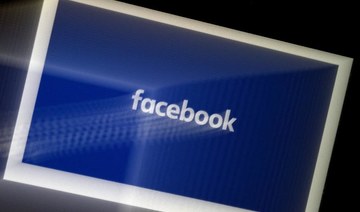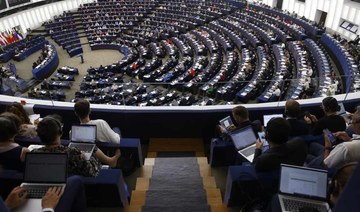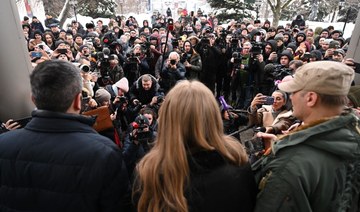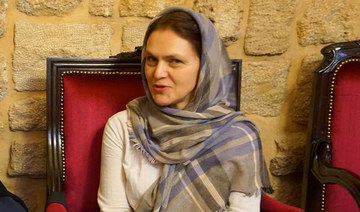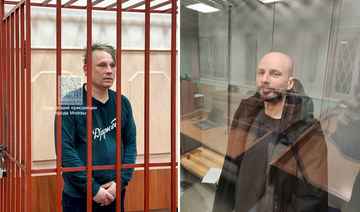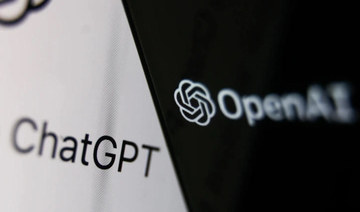DENVER: When Facebook founder Mark Zuckerberg donated $400 million to help fund election offices as they scrambled to deal with the coronavirus pandemic late last summer, he said he hoped he would never have to do it again.
Republican legislatures are granting him that wish.
At least eight GOP-controlled states have passed bans on donations to election offices this year as Republicans try to block outside funding of voting operations. The legislation often comes as part of Republican packages that also put new limits on how voters can cast ballots and impose new requirements on county or city-based election officials.
The response is spurred by anger and suspicion on the right that Zuckerberg’s money benefited Democrats in 2020. Conservatives have long accused the tech mogul’s social media platform of censoring right-wing voices as part of its campaign against misinformation.
Zuckerberg’s money was largely distributed through a nonpartisan foundation that had liberal roots. Conservative groups cite analyzes that the money went disproportionately to Democratic-leaning counties in key states such as Florida and Pennsylvania.
“People saw that, and looked around, and they were increasingly concerned about why would you have a billionaire funding our elections through the backdoor,” said Jessica Anderson, executive director of the conservative group Heritage Action, which has pushed the bans in several states.
But many election officials say that effort short-sighted and fueled by paranoia. Election offices, they argue, are chronically underfunded and now cannot benefit from donations that still flow to so many other branches of government, including police, schools and libraries.
Furthermore, they say there is no sign of favoritism in the distribution of the grants from Zuckerberg and his wife, Priscilla Chan. Elections are more expensive in populous urban areas, and especially more so last year, when states scrambled to shift to mail voting to deal with the pandemic. Metro areas had to buy expensive equipment to open and sort mail ballots, a task that smaller, more GOP-leaning counties could do by hand or with less gear.
Also, Republican-leaning areas were already discouraged from accepting election grants due to conservative suspicion of Zuckerberg. The Republican attorney general of Louisiana last year ordered his state’s election offices to turn down grants from the nonprofit, the Center for Tech and Civic Life, which distributed $350 million of the Zuckerberg money.
“Every election department that applied, received funding,” said CTCL’s executive director, Tiana Epps-Johnson, adding that the distribution of the money “reflects those who chose to apply.”
A spokesman for Zuckerberg declined to address the wave of new legislation.
“When our nation’s election infrastructure faced unprecedented challenges last year due to the pandemic, Mark and Priscilla stepped up to close a funding gap and granted $350 million to the Center for Tech and Civic Life, a nonpartisan, 501 (c)(3) organization,” said Ben LaBolt. “Mark made clear this was a unique effort to address the unprecedented challenge of the pandemic and his preference for elections to be publicly funded.”
The center distributed grants to 2,500 election offices nationwide, from Alaska to Florida. The money was spent in a wide variety of ways — protective gear for poll workers, public education campaigns promoting new methods to vote during the pandemic, and new trucks to haul voting equipment.
In northern Arizona, sprawling Coconino County used its $614,000 grant to hire more election workers, particularly Navajo speakers who could do outreach on a reservation, and set up drive-up sites for voters to drop off ballots, said county recorder Patty Hansen.
She said it was the first time she had enough money to expand outreach to the entire county, which is among the biggest in land size in the country at 18,600 square miles but is sparsely populated.
“Because of the legislation passed and signed by the governor, we will never be able to get a grant like that ever again,” she said. “They’re cutting off a funding source to be able to provide these additional requirements they’re putting on us.”
Election officials have long complained they were underfunded, but never more so than last year when they had to instantly revamp their entire operations at the peak of the pandemic. There was a huge shift to mail voting, while even in-person voting required new protective measures, and hazard pay for poll workers.
Democrats pushed for an extra $2 billion for election offices in the initial coronavirus aid bill in April but only got $400 million. After a spring and summer of troubled primaries and partisan deadlock over more funding, Zuckerberg stepped in. He and Chan donated a total of $400 million to election offices — $350 million in the form of grants to local offices that were distributed through CTCL.
The selection of CTCL raised eyebrows among some conservatives because of the group’s roots. Some of its founders, including Epps-Johnson, once were at the New Organizing Institute, which provided data and training to liberal activists Still, CTCL has become respected among election officials and includes a Republican, Pam Anderson, former elected clerk of a suburban Denver-area county, on its board. In an interview, she said the group was “100 percent nonpartisan.”
Other Republican election officials have also vouched for the impartiality of the program. “I don’t see why governments should be barred from trying to work with the private sector in securing grant funds,” said Brian Mead, a Republican election director in Licking County, Ohio, outside Columbus, which received $77,000 from CTCL. “If we can work with the private sector and secure funds where we save our taxpayers money, I think that’s a good thing,” Mead said.
That did not mollify conservatives, especially after the initial grants went to major, Democratic-voting cities. In Pennsylvania, one of the central battlegrounds of the presidential election, Philadelphia, with an annual election budget of $12.3 million, received $10 million from CTCL. The conservative Foundation for Government Accountability found that in Pennsylvania, Democratic-voting counties received an average of $4.99 per voter, while Republican-voting ones got $1.12 per voter.
In Florida, the differential was also dramatic, with one-third of the $18 million in total money going to Democratic-leaning Palm Beach County, and an additional $2.4 million for Miami-Dade County, which backed Democrat Joe Biden, albeit more narrowly than expected. Republican Donald Trump won the state.
“If Charles Koch was doing this, well, for many of these people the shoe would be on the other foot,” said Hayden Dublois, a researcher at the Foundation for Government Accountability, referring to the conservative billionaire.
In some states, including Georgia and Texas, the new laws require all donations to local election offices to be distributed by the secretary of state. In Arizona, Kansas, Iowa and elsewhere, they are banned altogether.
Anderson, the Republican CTCL board member, said that will do real damage.
“If you want to block this funding, then I want to ask if the legislators are funding elections?” Anderson said. “Because so many states don’t.”
Zuckerberg’s cash fuels GOP suspicion and new election rules
https://arab.news/76v32
Zuckerberg’s cash fuels GOP suspicion and new election rules

- Conservatives have long accused the tech mogul’s social media platform of censoring right-wing voices as part of its campaign against misinformation
- Zuckerberg’s money was largely distributed through a nonpartisan foundation that had liberal roots
EU bans 4 more Russian media outlets from broadcasting in the bloc, citing disinformation

- The EU has already suspended Russia Today and Sputnik among several other outlets since February 2022
BRUSSELS: The European Union on Friday banned four more Russian media outlets from broadcasting in the 27-nation bloc for what it calls the spread of propaganda about the invasion of Ukraine and disinformation as the EU heads into parliamentary elections in three weeks.
The latest batch of broadcasters consists of Voice of Europe, RIA Novosti, Izvestia and Rossiyskaya Gazeta, which the EU claims are all under control of the Kremlin. It said in a statement that the four are in particular targeting “European political parties, especially during election periods.”
Belgium already last month opened an investigation into suspected Russian interference in June’s Europe-wide elections, saying its country’s intelligence service has confirmed the existence of a network trying to undermine support for Ukraine.
The Czech government has imposed sanctions on a number of people after a pro-Russian influence operation was uncovered there. They are alleged to have approached members of the European Parliament and offered them money to promote Russian propaganda.
Since the war started in February 2022, the EU has already suspended Russia Today and Sputnik among several other outlets.
Israeli soldiers post abusive videos despite army’s pledge to act: BBC analysis

- The BBC analyzed 45 photos and videos posted online by Israeli soldiers that showed Palestinian prisoners in the West Bank being abused and humiliated
LONDON: Israeli soldiers continue to post videos of abuse against Palestinian detainees despite a military pledge to take action against the perpetrators, analysis by the BBC has found.
The broadcaster said it had analyzed 45 photos and videos posted online by Israeli soldiers that showed Palestinian prisoners in the West Bank being abused and humiliated. Some were draped in Israeli flags.
Experts say the footage and images, which showed Palestinians being stripped, beaten and blindfolded, could breach international law and amount to a war crime.
The Israel Defense Forces said some soldiers had been disciplined or suspended for “unacceptable behavior” but did not comment on the individual cases identified by the BBC.
The most recent investigation into social media misconduct by Israeli soldiers follows a previous inquiry in which BBC Verify confirmed Israeli soldiers had filmed Gazan detainees while beating them and then posted the material on social platforms.
The Israeli military has carried out arbitrary arrests across Gaza and the West Bank, including East Jerusalem, since the Hamas attack on Oct. 7. The number of Palestinian prisoners in the West Bank has since risen to more than 7,060 according to the Commission of Detainees’ Affairs and the Palestinian Prisoner Society.
Ori Givati, spokesperson for Breaking the Silence, a non-governmental organization for Israeli veterans working to expose wrongdoing in the IDF, told the BBC he was “far from shocked” to hear the misconduct was ongoing.
Blaming “current far-right political rhetoric in the country” for further encouraging the abuse, he added: “There are no repercussions. They [Israeli soldiers] get encouraged and supported by the highest ministers of the government.”
He said this played into a mindset already subscribed to by the military: “The culture in the military, when it comes to Palestinians, is that they are only targets. They are not human beings. This is how the military teaches you to behave.”
The BBC’s analysis found that the videos and photos it examined were posted by 11 soldiers of the Kfir Brigade, the largest infantry brigade in the IDF. None of them hid their identity.
The IDF did not respond when the BBC asked about the actions of the individual soldiers and whether they had been disciplined.
The BBC also attempted to contact the soldiers on social media. The organization was blocked by one, while none of the others responded.
Mark Ellis, executive director of the International Bar Association, urged an investigation into the incidents shown in the footage and called for the IDF to discipline those involved.
In response to the BBC’s investigation, the IDF said: “The IDF holds its soldiers to a professional standard … and investigates when behavior is not in line with the IDF’s values. In the event of unacceptable behavior, soldiers were disciplined and even suspended from reserve duty.
“Additionally, soldiers are instructed to avoid uploading footage of operational activities to social media networks.”
However, it did not acknowledge its pledge to act on BBC Verify’s earlier findings in Gaza, according to the broadcaster.
4 journalists killed in Gaza as death toll climbs above 100

- 104 Palestinian media workers reported dead, along with 3 Lebanese and 2 Israelis
LONDON: The Gaza Media Authority on Thursday said that four journalists had been killed in an Israeli airstrike, bringing the total number of journalists killed in the conflict to more than 100.
The victims were identified as Hail Al-Najjar, a video editor at the Al-Aqsa Media Network; Mahmoud Jahjouh, a photojournalist at the Palestine Post website; Moath Mustafa Al-Ghefari, a photojournalist at the Kanaan Land website and Palestinian Media Foundation; and Amina Mahmoud Hameed, a program presenter and editor at several media outlets, according to the Anadolu Agency.
The Gaza Media Office said the four were killed in an Israeli airstrike, but did not provide additional details on the circumstances surrounding their deaths.
A total of 104 Palestinian journalists have been killed since the conflict began on Oct. 7. Two Israeli and three Lebanese media workers also have been killed.
The latest loss adds to the already heavy toll on media workers, with the Committee to Protect Journalists saying the Gaza conflict is the deadliest for journalists and media workers since it began keeping records.
Israel is continuing its offensive on Gaza despite a UN Security Council resolution demanding an immediate ceasefire.
On Thursday, South Africa, which has brought a case accusing Israel of genocide to the International Court of Justice, urged the court to order Israel to halt its assault on Rafah.
According to Gaza medical authorities, more than 35,200 Palestinians have been killed, mostly women and children, and over 79,200 have been injured since early October when Israel launched its offensive following an attack by Hamas.
Russia outlaws SOTA opposition news outlet

- Authorities said outlet tries to destabilize the socio-political situation in Russia
- Move could criminalize SOTA content and puts its reporters at risk of arrest
LONDON: Russia declared opposition media outlet SOTA “undesirable” on Thursday, a move that could criminalize the sharing of its content and put its reporters at risk of arrest.
Authorities in Russia have declared dozens of news outlets, think tanks and non-profit organizations “undesirable” since 2015, a label rights groups say is designed to deter dissent.
In a statement, Russia’s Prosecutor General accused SOTA of “frank attempts to destabilize the socio-political situation in Russia” and “create tension and irritation in society.”
“Such activities, obviously encouraged by so-called Western inspirers, have the goal of undermining the spiritual and moral foundations of Russian society,” it said.
It also accused SOTA of co-operating with TV Rain and The Insider, two other independent Russian-language outlets based outside of the country that are linked to the opposition.
SOTA Project, which covers opposition protests and has been fiercely critical of the Kremlin, denied it had anything to do with TV Rain and The Insider and rejected the claims.
But it advised its followers in Russia to “remove reposts and links” to its materials to avoid the risk of prosecution. SOTA’s Telegram channel has around 137,000 subscribers.
“Law enforcement and courts consider publishing online to be a continuing offense. This means that you can be prosecuted for reposts from 2023, 2022, 2021,” it said.
SOTA Project was born out of a split with a separate news outlet called SOTAvision, which still covers the opposition but distanced itself from the prosecutors’ ruling on Thursday.
Since launching its offensive in Ukraine, Moscow has waged an unprecedented crackdown on dissent that rights groups have likened to Soviet-era mass repression.
Among other organizations labelled as “undesirable” in Russia are the World Wildlife Fund, Greenpeace, Transparency International and Radio Free Europe/Radio Liberty.
OpenAI strikes deal to bring Reddit content to ChatGPT

- Deal underscores Reddit’s attempt to diversify beyond its advertising business
- Content will be used to train AI models
LONDON: Reddit has partnered with OpenAI to bring its content to popular chatbot ChatGPT, the companies said on Thursday, sending the social media platform’s shares up 12 percent in extended trade.
The deal underscores Reddit’s attempt to diversify beyond its advertising business, and follows its recent partnership with Alphabet to make its content available for training Google’s AI models.
ChatGPT and other OpenAI products will use Reddit’s application programming interface, the means by which Reddit distributes its content, following the new partnership.
OpenAI will also become a Reddit advertising partner, the company said.
Ahead of Reddit’s March IPO, Reuters reported that Reddit struck its deal with Alphabet, worth about $60 million per year.
Investors view selling its data to train AI models as a key source of revenue beyond Reddit’s advertising business.
The social media company earlier this month reported strong revenue growth and improving profitability in the first earnings since its market debut, indicating that its Google deal and its push to grow its ads business were paying off.
Reddit’s shares rose 10.5 percent to $62.31 after the bell. As of Wednesday’s close, the stock is up nearly 12 percent since its market debut in March.



